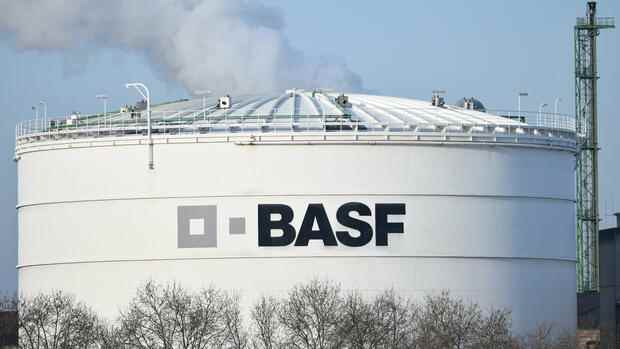Dusseldorf The world’s largest chemical company BASF surprisingly increased its forecast for 2022 on Wednesday. In the second half of the year, the group is expecting a gradual slowdown in economic development, which will be more pronounced in Europe than in other regions of the world. In China, however, the economic situation will improve significantly, said BASF boss Martin Brudermüller on Wednesday.
“We assume that the Chinese government will take targeted steps to stimulate the economy. In addition, we expect a more differentiated strategy to contain the corona virus,” explained Brudermüller. BASF is therefore making sure that the tough lockdowns that recently paralyzed entire regions economically in China will not be repeated. In the USA, the chemical market remains robust.
The chemical company has so far coped well with the problems in China and the burden of expensive raw materials and high energy costs. The latter burdens could be passed on to customers through price increases. Brudermüller made it clear that the group would make further price increases. This is a clear signal that the Group is currently assuming continued good demand for chemicals and plastics.
After the strong second quarter, BASF is now confident that it will be able to exceed previous expectations for the year as a whole. For 2022, the chemical company now expects sales of between 86 and 89 billion euros. At best, this is 15 percent more than previously planned. The group announced that profit before special items would be between 6.8 and 7.2 billion euros – and thus slightly higher than previously forecast.
Top jobs of the day
Find the best jobs now and
be notified by email.
How BASF reduces gas consumption
However, the prognosis is subject to numerous reservations. Above all, BASF names a possible shortage in the supply of natural gas, which the group uses as an energy source and raw material. This could lead to production interruptions at the large European locations, especially at the central Verbund site in Ludwigshafen. The following rule applies there: If the gas supply permanently falls to less than half of the demand, the world’s largest location would have to be shut down completely.
BASF boss Brudermüller is convinced that this will not happen. The management assumes that even if the third stage of the state emergency plan were called out, sufficient gas would be supplied to continue operating the Verbund site, albeit at a reduced rate. In that case, the authorities would allocate gas to the industry according to the importance of the companies. “We expect that the majority of the chemical industry will be classified as systemically important,” said Brudermüller.
BASF should be one of them, because the group is of great importance for the functioning production chains in numerous customer industries such as car manufacturing. At the same time, Brudermüller emphasized that the group itself uses all possible ways to save gas. The savings rate of 15 percent demanded by the EU Commission on Tuesday is also a good benchmark for your own company.
BASF wants to replace gas at sites with oil
Wherever possible, BASF intends to replace gas as an energy source with oil. This works to a lesser extent when firing the chemical plants, but on a larger scale in the company’s own power plants. In the eastern German town of Schwarzeide, the second-largest BASF site in Germany, the group intends to generate 100 percent of its electricity and steam requirements with heating oil.
In addition to technical optimization, there is great savings potential for BASF in products that use gas both as a raw material and as an energy supplier. Around 40 percent of BASF’s total natural gas requirements are used for raw materials. The products include ammonia, for example, the substance is the basis for many refined chemicals and for the production of fertilizer. A shutdown of ammonia production in Ludwigshafen would be feasible for BASF. Like oil, the substance is available worldwide, can be purchased externally and delivered by ship.
No consequences for BASF sites outside of Europe
For the BASF production sites outside Europe, the group expects hardly any effects in the event of a European gas shortage. The failure of European capacities could thus be at least partially offset by higher plant utilization at non-European locations, it said.
Brudermüller was confident about the continued supply of gas in Germany as a whole: “If we take the austerity appeals seriously and use all market-based avenues, we can get over this difficult situation.”
In purely operational terms, BASF currently has few problems. The group had already published the basic figures for the second quarter two weeks ago because they were well above the analysts’ estimates. According to this, sales rose by 16 percent to 23 billion euros compared to the same quarter of the previous year. At EUR 2.3 billion, adjusted profit was at the level of the strong prior-year quarter.
On the one hand, BASF benefited from price increases that the group was able to push through, especially in the specialty chemicals businesses. On the other hand, positive currency effects from the strong dollar helped BASF.
More: “We’re currently giving everything again” – the industry no longer sees much potential for savings in gas
